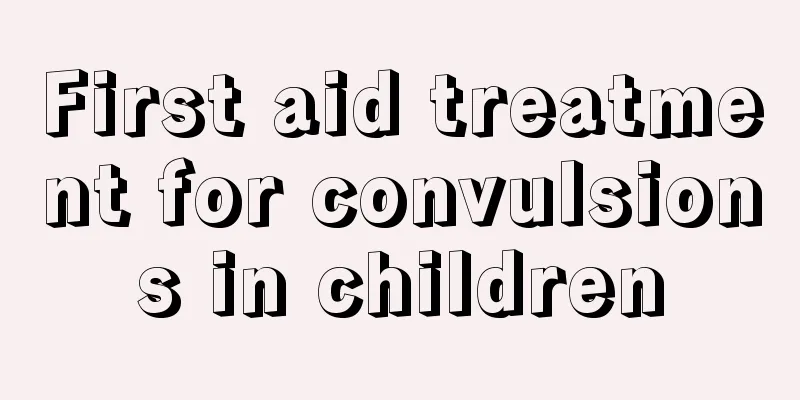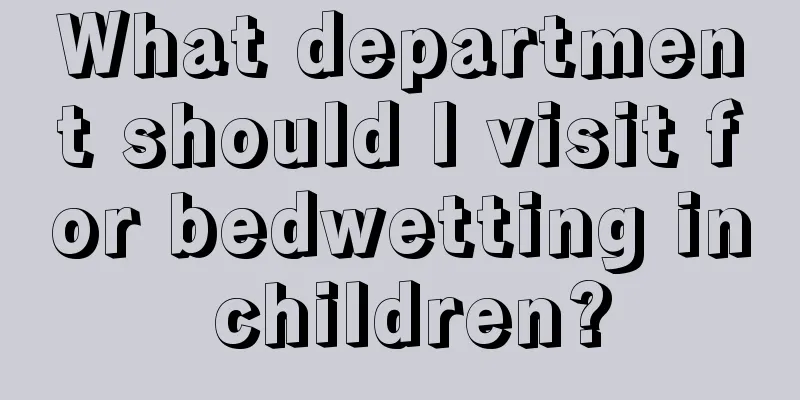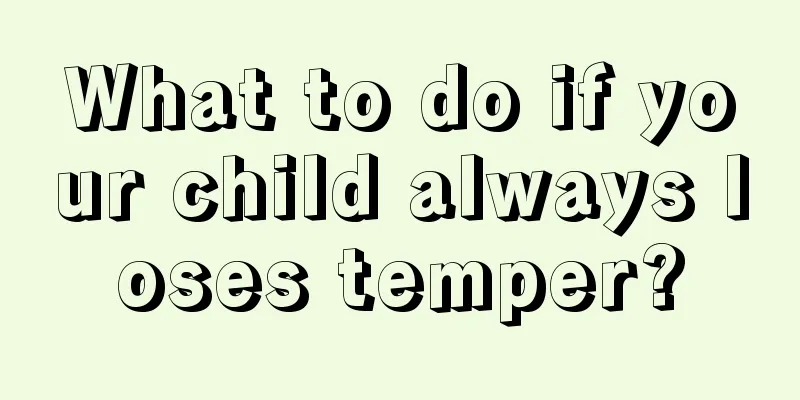First aid treatment for convulsions in children

|
Parents usually feel very worried after their children have convulsions, and they don't know how to cure the condition of their baby. Therefore, they must take good care of the baby during the attack to prevent the baby from biting his tongue during the convulsion. If necessary, they can also give the baby medication or injection of some sedative drugs, which can improve the clinical symptoms of the convulsions. (I) Care during convulsions 1. Immediately place a tongue depressor, chopsticks or towel wrapped with gauze between the patient's upper and lower teeth to prevent tongue bite. Unbutton your clothes and belt promptly to reduce airway obstruction and improve hypoxia. Protect the large joints of the limbs and prevent limb spasms from causing dislocation and fracture. 2. Inject sedatives intramuscularly or intravenously as directed by your doctor, and observe and record the effects of the medication. 3. When a convulsion occurs, pay attention to the patient's state of consciousness, pupil changes, type of seizure, duration, and characteristics of the seizure, identify the cause, treat the symptoms, and keep records. 4. During an attack, the patient should lie on his side with his head tilted to one side to facilitate the drainage of oral secretions and prevent aspiration. Pay attention to keeping the airway open, suction sputum from the mouth when necessary, and give oxygen when breathing is difficult. 5. When the patient is convulsing, reduce any stimulation, make all movements gentle, keep quiet, and avoid strong light stimulation. 6. During an attack, bed rails should be added and soft cushions should be placed on both sides to prevent limb injuries. 7. Those who have dentures should remove them to prevent accidental aspiration. (II) Care after a seizure 1. The patient lies flat, rests quietly, and is given low-flow oxygen to relieve brain hypoxia caused by convulsions. 2. People who are conscious during a convulsion may suffer extreme pain due to severe skeletal muscle spasms and should be given active treatment. 3. A small number of patients may become agitated for a short period of time during the process of waking up. Protective measures should be strengthened, with dedicated caregivers and bed guards installed to prevent them from hurting themselves, others, or running away. 4. Convulsions accompanied by limb pain and urinary incontinence, such as spinal convulsions, should be treated according to the doctor's instructions, and the perineum should be well cared for, clothes should be changed in time, and the patient's skin should be kept clean. (III) Observation of the condition: You can get up and move around during the intervals between attacks. Pay attention to the precursory symptoms of an attack and whether there are any triggering factors. If precursors appear, you should rest in bed immediately. If necessary, add a bed guard to prevent falling out of bed. (IV) Psychological care guides patients to relax, not be nervous, avoid all triggering factors, keep their emotions stable, avoid emotional excitement, and use medication as prescribed by the doctor to eliminate the patient's tension and anxiety when necessary. |
<<: What should I do if my baby has allergic diarrhea?
>>: Baby low fever convulsions
Recommend
What should babies with bad stomach eat?
Children can only grow up healthily and happily i...
What causes children's front teeth to turn outward?
The pursuit of beauty is believed to be the goal ...
There are several treatments for pseudomyopia in adolescents
We feel that many schools now have many teenagers...
What to do if your baby has mumps and fever
Don’t think that mumps is just an inflammation ca...
What are the solutions for ringworm in children?
Ringworm can grow on many parts of the human skin...
Disadvantages of frequent feedings
Many mothers do not know how much milk their babi...
What are the clinical manifestations of children with cerebral palsy?
Every parent hopes that their children can grow u...
Does Chinese medicine work for children's cough patches?
The country has now clearly stipulated that it is...
Why does the child cry when he wakes up?
It is normal for children to like crying, but in ...
What should I do if my child is rebellious during puberty?
When they reach adolescence, most children, wheth...
What should I do if my child has a fever of 42 degrees?
Generally speaking, a fever above 38 degrees is c...
How to treat baby's buttocks skin
Every family will have a lovely baby, and the bab...
Redness around the injection site
Giving babies vaccinations is an extremely import...
When is the best time for babies to eat DHA?
For parents, their babies are their most precious...
What are the home care methods for children with stye
Stye is a type of eye disease, and the name of th...









